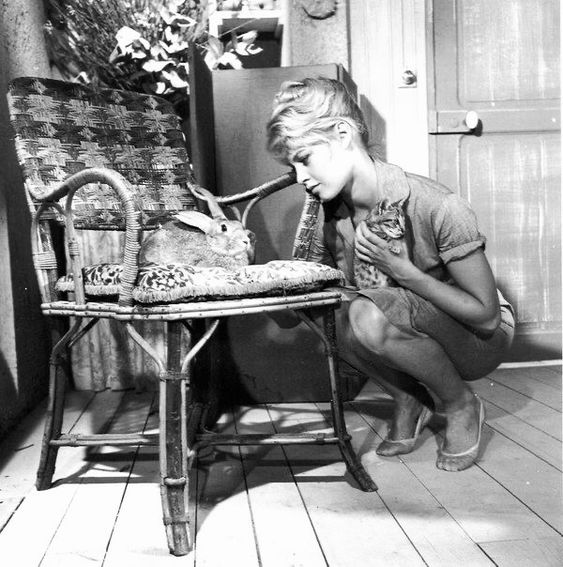 Neptune’s placement in the 1st house of an individual’s birth chart is a a placement that bestows upon them a deep connection to the immense and mystical forces associated with the ocean planet. Just as Neptune affects the tides of distant worlds, so too does it sway the emotions within the person. The individual becomes a living embodiment of Neptune’s essence, as if they carry within themselves the weight and intensity of the ocean’s powerful currents. This infusion is immediately evident in their demeanor, radiating an aura of heightened sensitivity and an air of magnetism. Their very presence exudes an almost magical quality, drawing others into their dreamy and ethereal realm.
Neptune’s placement in the 1st house of an individual’s birth chart is a a placement that bestows upon them a deep connection to the immense and mystical forces associated with the ocean planet. Just as Neptune affects the tides of distant worlds, so too does it sway the emotions within the person. The individual becomes a living embodiment of Neptune’s essence, as if they carry within themselves the weight and intensity of the ocean’s powerful currents. This infusion is immediately evident in their demeanor, radiating an aura of heightened sensitivity and an air of magnetism. Their very presence exudes an almost magical quality, drawing others into their dreamy and ethereal realm.
The 1st house is linked to one’s physical appearance, sense of self, and approach to life. With Neptune’s influence in this sphere, the person’s outward appearance and personal identity possess an alluring yet elusive quality. Others may perceive them as enchanting, often casting an aura of mystery that entices those around them. This shimmering facade might even obscure the true depths of their identity, leaving a sense of enigma in their wake. The Neptune-infused individual approaches life through a unique lens, one that is tinted by their proclivity for seeing beyond the surface. Their outlook is colored by the oceanic symbolism of Neptune, allowing them to connect with the currents of emotions and energies that often go unnoticed by others. This gift of perception enables them to sense the underlying mood and emotional undercurrents of any given situation without explicit effort.
This heightened sensitivity, however, comes at a cost. Much like a sponge absorbing water, they soak up the emotional vibrations of their environment and the people around them. This emotional permeability makes them susceptible to feeling overwhelmed, particularly when exposed to negative or chaotic energies. Their intuitive faculties are so finely attuned that they might find themselves intuiting the unspoken thoughts and feelings of others, often before words are exchanged.
The Neptune-1st house combination can also spark the ignition of profound prophetic visions and experiences that bridge the gap between the mundane and the metaphysical. These individuals might find themselves gifted with moments of profound insight, where the veil between reality and the spiritual realm becomes thin, allowing them to glimpse a deeper understanding of existence. Yet, this connection to the mystical can be a double-edged sword. While they can tap into the hidden currents that flow through life, they lack the protective barriers that shield them from potential harm.
Neptune’s influence symbolizes an openness to new experiences, transformation, and a willingness to explore the uncharted territories of the human experience. This propensity for change is rooted in Neptune’s nature as a planet of transcendence and metamorphosis. The individual might find themselves evolving in response to their interactions with various environments and people, often embodying the fluidity and adaptability of water.
Neptune in the 1st house is teeming with emotional currents, enigmatic depths, and mystical connections. This positioning gifts the individual with the power to perceive and absorb the unspoken emotions of the world around them, bridging the gap between reality and the intangible. It can also bring about a range of complex challenges and unique attributes in individuals. While it gifts them with heightened sensitivity and a deep connection to the otherworldly realm, it can also lead to struggles and tendencies that need careful consideration. One significant trait that can emerge is a lack of focus and a sense of aimlessness in life. Neptune’s elusive nature can make it difficult for those strongly influenced by it to establish concrete goals and maintain a clear direction. This lack of firm purpose can result in a wandering journey from one experience to another, as they’re drawn to explore various avenues without necessarily settling on a single path. The boundary between their aspirations and the nebulous realm of dreams can blur, leading to challenges in grounding their ambitions in reality.
As Neptune’s influence permeates their sense of self, these individuals might struggle to establish a solid and well-defined identity. The fluidity and malleability of Neptune can make it challenging for them to firmly delineate their boundaries and assert their individuality. This can lead to an internal conflict between their adaptable nature and the need to establish a strong sense of self in the material world. The heightened sensitivity that Neptune imparts can also be a double-edged sword. While it enables them to deeply connect with emotions, energies, and spiritual currents, it can also make them vulnerable to the harsh realities of the everyday world. Coping with the demands and challenges of the real world might prove challenging, often resulting in feelings of overwhelm, malaise, and even inexplicable physical ailments. The porous nature of Neptune can lead to the absorption of negative energies, which might manifest as mysterious exhaustion or ailments that are difficult to diagnose.
Neptune’s association with escapism can indeed lead those influenced by it to seek refuge in substances like drugs and alcohol. The pull of these substances as a means to temporarily evade the challenges and complexities of life can be particularly appealing for individuals with Neptune in the 1st house. This coping mechanism can offer a fleeting escape from the overwhelming sensitivity and intensity of their experiences, albeit at a significant cost to their overall well-being.
The tendency to adopt personas of others is another intriguing aspect of Neptune’s influence. This phenomenon can be seen as a form of empathy taken to an extreme level. The person might unconsciously mirror the emotions, traits, and even identities of those they interact with, blurring the lines between their own self and others. This chameleon-like ability can be both a strength and a challenge, as it allows them to connect deeply with people but can also lead to confusion about their own authentic identity.
Individuals with Neptune in the 1st house often find fulfillment in creative and artistic pursuits. The merging of Neptune’s spiritual, imaginative essence and artistic inclinations results in a deep resonance with the world of arts, be it visual, literary, musical, or esoteric. This creative outlet can provide them with a means to channel their profound sensitivities and poetic insights into physical expressions that resonate with others on a deep level.
Marilyn Monroe’s (Neptune Rising) possessed a charming and feminine demeanor, which allowed her to embody different personas, which is a classic example of Neptune’s influence. Her ability to project an almost seductive and innocent image played a significant role in her becoming a Hollywood icon. This ability to transcend the boundaries of the mundane and tap into the mystique of Neptune is a testament to the power of this placement.
Thousands, even millions of American men projected their internal feminine onto Marilyn Monroe. Projections without personal contact can damage the person receiving them. We have to say that Marilyn Monroe called for these projections as a part of her power and longing, and her disturbance must have gone back to victimization in childhood. ~ Robert Bly.
The dynamics of projection and the porous sense of boundaries associated with Neptune in the 1st house can hold both transformative potential and inherent risks. The influence of Neptune in this placement often leads individuals to embody the dreams, desires, and ideals of those they interact with, making them something of a mirror that reflects the inner longings of others. Marilyn Monroe’s ability to both understand and fulfill the desires of those around her is a prime example of this phenomenon. Her magnetic charm and seductive presence made her an ideal canvas upon which others projected their fantasies and aspirations. This projection, as identified by psychologist Robert Bly, can be precarious, as it blurs the lines between reality and idealization. Those who projected their desires onto Marilyn saw what they wanted to see, often bypassing her true self in favor of an idealized version.
The mutability and blending nature of Neptune in the 1st house contribute to this porous boundary. The individual is like a sponge, absorbing the energies and emotions of their environment, leading to an unconscious mirroring of the hopes and dreams of those around them. This quality enables them to act as vessels through which others’ ideals and yearnings are expressed and brought to life. The feminine and watery symbolism associated with Neptune intensifies this tendency. Feminine energy is often receptive and nurturing, absorbing the emotions and energies of others like water. This receptivity can make these individuals especially attuned to the needs and emotions of others, making them adept at sensing and responding to the unspoken feelings of those they interact with.
However, the same sensitivity that allows them to be vehicles for the expression of ideals and dreams can also render them vulnerable to manipulation. Their apparent softness and pliability can make them easy targets for those who seek to take advantage of their empathetic and accommodating nature. Others might recognize their tendency to absorb and reflect back the desires of others and attempt to exploit this quality for their own gain. The challenge for individuals with Neptune in the 1st house lies in finding a balance between their empathetic and receptive nature and the need to maintain healthy boundaries. Learning to discern between their authentic self and the projections of others is crucial to maintaining a sense of self and preventing the erosion of their identity through constant mirroring.
While Neptune’s influence can make them susceptible to manipulation, it also grants them a unique gift: the ability to help others explore their innermost aspirations and ideals. By embodying these aspirations and offering a glimpse of what could be, they can inspire and uplift those around them. This role as a catalyst for dreams can be deeply rewarding when handled with awareness and discernment.
One’s birth and its associated circumstances are also described in the 1st house:
The experience of physical birth may be felt by the person with a 1st house Neptune as a process in which he or she has no volition or choice. It is the mother’s will, or perhaps that of the doctor or midwife, but not one’s own; and the archetypal Martial component of struggle, inherent in the birth process, is often curiously absent. I have seen this placement in the charts of many people whose mothers were drugged into unconsciousness during the birth process, and both mother and infant share in the topor and lassitude which results. The whole experience takes place, as it were, under the water. Later in life, the individual tends to deal with external reality with the same lassitude and passivity. ~ The Astrological Neptune & the Quest for Redemption
When Neptune is positioned in the 1st house of an individual’s birth chart, its influence creates a complex interplay between the person’s self-perception and their interactions with others, particularly in one-on-one relationships governed by the seventh house. This dynamic is marked by a duality of empathetic connection and potential pitfalls that arise from Neptune’s addictive tendencies. This opposition often manifests as a tension between the desire for personal autonomy and the need for emotional connection with others.
Neptune’s addictive tendencies can give rise to a dangerous sense of neediness in relationships. The individual may become emotionally dependent on others, seeking validation and security through these connections. This dependency can sometimes lead to emotionally manipulative behavior, where they may consciously or unconsciously evoke pity, sympathy, or guilt from others to maintain their emotional bonds. This dynamic can inadvertently establish a victim/savior dynamic in relationships, where the individual oscillates between needing rescue and providing solace, creating a complex and potentially toxic cycle.
However, beneath these potential challenges lies the remarkable gift of empathy and sensitivity that Neptune in the first house bestows. Those influenced by this placement possess a deep and intuitive understanding of others’ emotional states. They are highly attuned to the unspoken feelings and energies that underlie interpersonal interactions, allowing them to offer genuine emotional support and comfort to those around them. The inherent empathy often drives individuals with Neptune in the 1st house to seek out emotional connections with others. They are drawn to relationships that provide a sense of emotional fulfillment, seeking partners who can meet their deep need for understanding and connection. The desire to merge and fuse with others can be strong, as they may feel more complete and secure when they’re in close emotional proximity to someone else. This yearning to escape solitude can stem from a deep-seated dread of being alone, as the individual might associate isolation with feelings of emptiness or insignificance.
The positive expression of Neptune’s influence in the 1st house is especially evident in careers that revolve around empathy and emotional connection. Professions such as counseling, therapy, healing arts, and creative endeavors allow them to channel their profound capacity for understanding and identifying with others’ emotional experiences. In these roles, they can make a meaningful impact by offering genuine compassion, support, and a safe space for others to express their feelings. When these sensitive traits are harnessed constructively, individuals with Neptune in the 1st house radiate a remarkable kindness and understanding that touches everyone they encounter. Their ability to perceive and resonate with others’ emotions creates an atmosphere of empathy that invites people to share their innermost thoughts and feelings. This gift of emotional attunement can foster deep and authentic connections, even if there’s a constant undercurrent of the need for emotional security.















